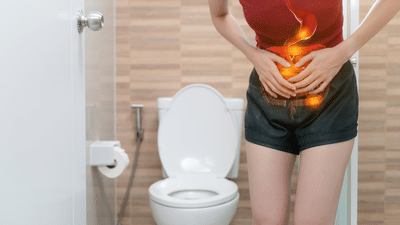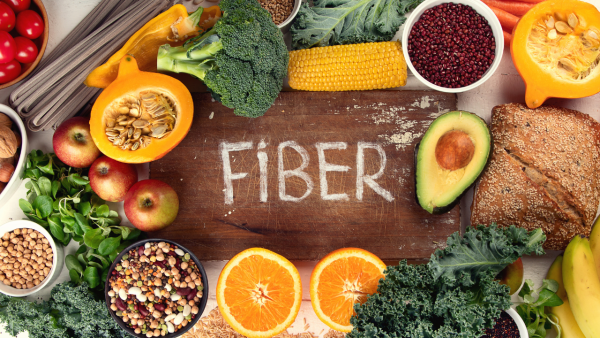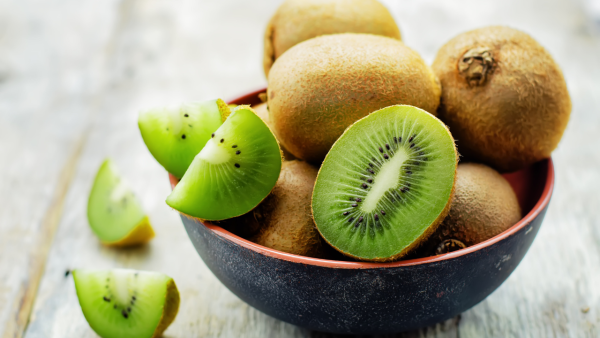British Dietetic Association shares new guidelines on foods to consume to relive constipation

The British Dietetic Association (BDA), continues to stress that relief from constipation starts with the diet, not in laxatives, but in consistency, water, and natural fibre variety. The new guidance stresses not just how much fibre, but what kind and quality of food is eaten. Among novel foods being recommended that are on the increase, kiwi fruit is noteworthy for its scientifically based gut-friendly benefits.
The guidelines:

These guidelines were developed through a comprehensive systematic review by dietitians and experts at King's college London, guidelines offer 59 practical recommendations focusing on specific foods, drinks, and supplements.
Notably, the guidelines emphasize the consumption of 2–3 kiwi fruits per day and the intake of high mineral-content water as effective dietary strategies for alleviating constipation symptoms. These approaches are grounded in scientific evidence and are considered more beneficial than generic high-fibre diets or the use of senna supplements
Other recommendations:
The 30-gram fibre target set by BDA

The BDA recommends that adults get about 30 grams of dietary fibre each day. Fibre increases the bulk and softness of stool, making it move through the intestines more easily. But fibre must be increased gradually to cause no discomfort, and always accompanied by proper hydration — about 2 litres of fluid daily. Water helps fibre swell and prevents stools from drying out.
To achieve this goal, the BDA recommends a blend of:
- Whole grains: Oats, wholemeal bread, brown rice and cereals.
- Legumes and pulses: Consumption of lentils, chickpeas etc
- Fruits and vegetables: Particularly those consumed with skin or seeds.
- Nuts and seeds: Like chia, flax, and almonds for additional soluble fibre.
The kiwi connection

Latest nutritional surveys backed by the BDA and other British dietetic organizations highlight kiwi fruit as a natural, non-prescription remedy for constipation. New Zealand and U.K. research finds that two daily green kiwis can substantially boost stool frequency and softness within two to four weeks.
Kiwi contains a special enzyme, named actinidin, which enhances the digestion by facilitating protein breakdown and an enhanced gut mobility. Kiwi also possesses soluble and insoluble fibre — a rare combination that ensures healthy stool formation without excessive gas or bloating. The high water content and vitamin C in kiwi also assist in hydration and soften stools naturally.
Unlike prunes, which act primarily through sorbitol (naturally occurring sugar alcohol that pulls water into the colon), kiwi provides a lower-sugar, less irritating mechanism that will be appropriate for individuals who find dried fruit causes discomfort or bloating. The BDA cites kiwi as an appropriate "functional food" for mild to moderate constipation, particularly in individuals looking for long-term, food-based control over symptoms and not short-term pharmaceutical solutions.
Hydration and meal rhythmWater is the unobtrusive partner of every high-fibre diet. The BDA recommends retaining a minimum of 8–10 fluid cups per day — more when upping fibre. Herbal teas, soups, and watered-down fruit juices all count towards overall hydration.
Meal pattern is also important. Taking meals regularly activates the gastrocolic reflex — a normal bowel-stimulating mechanism that promotes movement through the intestines. Irregular mealtimes or extended fasting can disrupt this pattern and slow bowel emptying.
Natural laxative-type foods
- Besides kiwi, there are plenty of other food items that helps in regulating bowel movements, without any medications:
- Prunes and figs, because they contain natural sugars and help soften stool
- If you’re not getting enough fibre from food, psyllium husk is a safe and effective supplement that can help.
- Fermented foods such as yogurt and kefir can enhance the regularity of stools through the balance of gut bacteria.
How to plate a proper meal
- Breakfast: Oatmeal, bowl of porridge, add berries, nuts and seeds on top.
- Lunch: lentil salad with brown rice and mixed veggies.
- Snack: two kiwis or a serving of prunes.
- Dinner: whole-grain chapati, stir-fried vegetables, and yogurt.
Maintain proper hydration for the whole day, along with other dietary compulsions.
 The British Dietetic Association (BDA), continues to stress that relief from constipation starts with the diet, not in laxatives, but in consistency, water, and natural fibre variety. The new guidance stresses not just how much fibre, but what kind and quality of food is eaten. Among novel foods being recommended that are on the increase, kiwi fruit is noteworthy for its scientifically based gut-friendly benefits.
The British Dietetic Association (BDA), continues to stress that relief from constipation starts with the diet, not in laxatives, but in consistency, water, and natural fibre variety. The new guidance stresses not just how much fibre, but what kind and quality of food is eaten. Among novel foods being recommended that are on the increase, kiwi fruit is noteworthy for its scientifically based gut-friendly benefits.


